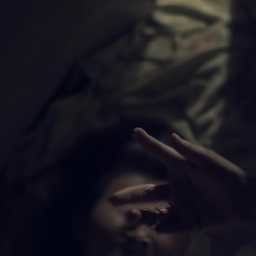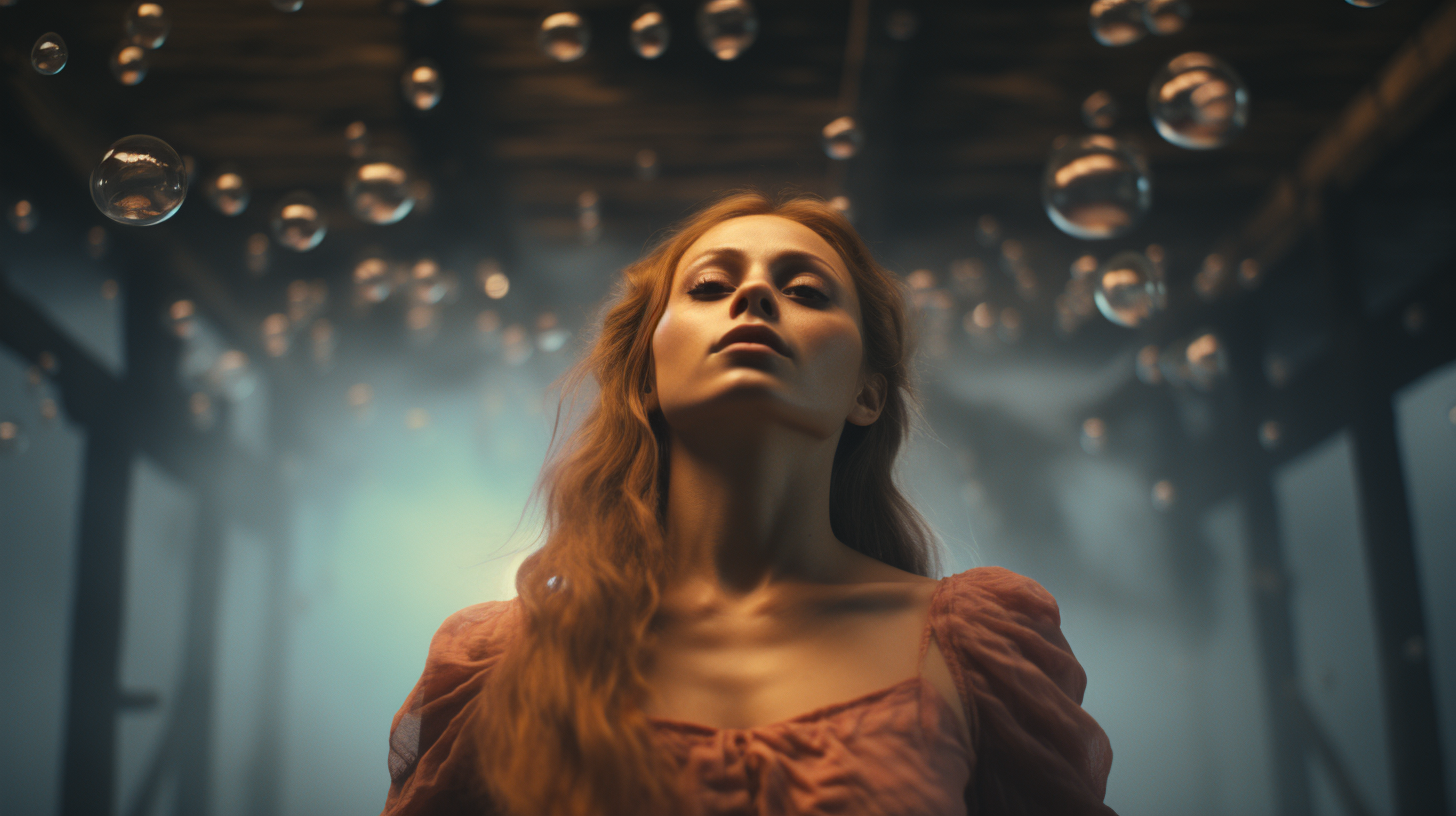Hello, fans of movies! I am excited to talk about a film that has touched the hearts of many, including myself – What Dreams May Come. This 1998 film, directed by Vincent Ward, explores the concepts of the afterlife, love, and grief in a powerful way. With stellar performances by Robin Williams, Cuba Gooding Jr., and Annabella Sciorra, this drama is a must-watch for anyone who enjoys films that provoke thought and feature stunning visuals.
Now, the big question is, where can you watch this masterpiece? Well, fear not, because I have done the research for you and found several options for you to choose from. Whether you prefer streaming services, DVD rentals, or even attending film festivals and screenings, there are plenty of ways to access this beloved film.
So, sit back, relax, and let me guide you through the options for where to watch What Dreams May Come.
Key Takeaways
- "What Dreams May Come"can be rented or purchased on Amazon Prime Video, Google Play, iTunes, and Vudu, and is also available on international streaming platforms.
- Troubleshooting tips are available for streaming issues, and the film can also be accessed through cable or satellite provider’s on-demand service.
- "What Dreams May Come"is available on DVD and Blu-ray, and can also be borrowed for free from local libraries.
- Film festivals and special screenings offer a unique experience to watch the film on the big screen, meet filmmakers and actors, and gain a deeper understanding of the film’s themes and creative process. Social media fan communities provide a space to share love of the movie and connect with others.
Overview of the Film’s Plot and Cast
Get ready to be swept away by the breathtaking plot and talented cast of What Dreams May Come! This movie, released in 1998, tells the story of Chris Nielsen, played by Robin Williams, who tragically dies in a car accident.
After his death, Chris finds himself in a beautiful and vibrant afterlife, where he is reunited with his children who had passed away before him. However, the happiness of this new world is short-lived when Chris discovers that his wife, Annie, played by Annabella Sciorra, has committed suicide and is now trapped in a dark and desolate realm.
Chris sets out on a perilous journey to save his wife’s soul and bring her back to the light. What Dreams May Come is a visually stunning film that explores themes of love, death, and the afterlife. The movie is filled with symbolism, such as the use of vibrant colors to represent the afterlife and the use of dark and muted tones to represent the underworld.
The film also explores the idea of redemption and the power of love to overcome even death itself. The cast of the film is also exceptional, with Robin Williams delivering a powerful and emotional performance as Chris Nielsen, and Annabella Sciorra bringing depth and complexity to her portrayal of Annie.
Now, let’s move on to where you can watch this incredible film.
Amazon Prime Video
I found out that the film ‘What Dreams May Come’ is available for rent or purchase on Amazon Prime Video. It’s easy to access the movie on the platform, and the rental or purchase price is reasonable.
I also found that the film is compatible with different devices, including smart TVs, laptops, tablets, and smartphones.
How to Rent or Buy the Film
To rent or buy What Dreams May Come, head to popular streaming services like Amazon Prime Video or Apple TV. Both rental and purchase options are available, with rental typically being the more cost-effective choice. Renting the movie allows for a 48-hour viewing window, while purchasing gives you the ability to watch the film as many times as you’d like.
It’s also worth noting that What Dreams May Come is available on international streaming platforms, making it accessible to viewers around the world. However, it’s important to check the availability of the film in your country before renting or purchasing.
With that said, the next thing to consider is the compatibility of the film with different devices.
Compatibility with Different Devices
Don’t miss out on the breathtaking visuals and captivating storyline of this film – make sure it can be viewed on all your devices by checking its compatibility before purchasing or renting.
When it comes to streaming options, What Dreams May Come is available on popular platforms such as Amazon Prime Video, Google Play Movies & TV, iTunes, and Vudu. These platforms allow users to rent or buy the film, and stream it on compatible devices such as laptops, smartphones, tablets, and smart TVs.
However, if you encounter any issues while streaming the film, there are troubleshooting tips you can follow. These include checking your internet connection, clearing your browser’s cache and cookies, and updating your device’s software.
Additionally, if you prefer a more traditional viewing experience, you can also access What Dreams May Come through your cable or satellite provider’s on-demand service.
Cable or Satellite Provider’s On-Demand Service
You can easily access What Dreams May Come on your cable or satellite provider’s on-demand service. This option is ideal for those who want to watch the movie on their TV, without having to purchase the DVD or Blu-ray.
Additionally, some cable and satellite providers offer streaming alternatives for those who prefer to watch the movie on their computer or mobile device.
When considering cost comparison, it’s important to note that renting or purchasing the movie through your cable or satellite provider’s on-demand service may be more expensive than other streaming options such as Amazon Prime Video or Netflix. However, if you already have a subscription to your cable or satellite provider’s on-demand service, this may be the most cost-effective option for you.
On the other hand, if you prefer to own a physical copy of the movie, DVD and Blu-ray options are available.
DVD and Blu-ray Options
If you’re looking for a more traditional viewing experience, owning a physical copy of What Dreams May Come on DVD or Blu-ray can provide you with a higher quality picture and sound, as well as bonus features and behind-the-scenes content. While streaming services offer convenience and immediate access, owning a physical copy allows you to watch the movie without worrying about internet connectivity or buffering issues. Additionally, DVD and Blu-ray releases often include additional content such as director commentary, deleted scenes, and making-of featurettes.
When it comes to pricing, purchasing a DVD or Blu-ray copy of the movie can be more cost-effective in the long run compared to continuously paying for a streaming subscription. The table below compares the pricing options for purchasing a DVD or Blu-ray copy of What Dreams May Come versus streaming the movie on popular platforms such as Amazon Prime Video and Google Play:
| Platform | DVD Price | Blu-ray Price | Rental Price | Purchase Price |
|---|---|---|---|---|
| Amazon Prime Video | N/A | N/A | $3.99 | $9.99 |
| Google Play | N/A | N/A | $3.99 | $9.99 |
| DVD | $7.99 | N/A | N/A | N/A |
| Blu-ray | N/A | $14.99 | N/A | N/A |
As shown in the table, purchasing a DVD copy of the movie is the most cost-effective option, followed by purchasing a digital copy on Amazon Prime Video or Google Play. However, if you’re looking for the highest quality viewing experience, investing in a Blu-ray copy is worth considering. Now, let’s explore other streaming services where you can watch What Dreams May Come.
Other Streaming Services
For a wider range of options, there are alternate platforms and streaming alternatives available to watch ‘What Dreams May Come’. Some of the popular streaming services that offer this movie include Amazon Prime Video, Google Play, iTunes, and Vudu. These platforms allow you to rent or purchase the movie, giving you the freedom to watch it anytime and anywhere.
Apart from these mainstream services, there are also lesser-known streaming platforms and websites that offer ‘What Dreams May Come’. However, it’s important to be cautious and do your research before accessing these sites, as some of them may not be legal or safe.
Alternatively, you can check if your local library has a copy of the movie, which you can borrow for free. This is a great option for those who want to watch the movie without spending any money.
Local Libraries
Visiting your local library could be a great opportunity to explore a variety of films, including "What Dreams May Come,"without having to spend any money on rental or purchase fees. Here are some benefits of borrowing from your local library:
-
Availability of copies: Most local libraries have a vast collection of DVDs, including popular titles such as "What Dreams May Come."This means that you are likely to find a copy of the movie easily, and you won’t have to wait for days or weeks for it to become available.
-
Free of cost: Borrowing a movie from your local library is free of charge. This means that you can enjoy "What Dreams May Come"without having to spend any money on rental or purchase fees.
-
Access to other resources: Apart from films, local libraries offer access to a variety of resources such as books, magazines, and newspapers. You can also attend events such as book clubs and film screenings, where you can connect with like-minded people and expand your knowledge.
Borrowing from your local library is an excellent option for those who want to watch "What Dreams May Come"without spending any money. However, if you want to rent the movie online, there are several options available.
Online Rental Services
After checking out my local library and finding out they didn’t have a copy of ‘What Dreams May Come,’ I decided to turn to online rental services. These services offer the convenience of renting and watching movies from the comfort of your own home. Plus, they often have a wider selection than physical rental stores.
One of the biggest advantages of online rental services is the ability to compare prices and availability across different platforms. From Amazon Prime to iTunes to Google Play, there are many options available, and each platform may have different rental periods and pricing structures. Additionally, some rental services may have different availability in different countries. It’s important to check whether the movie is available in your region before renting.
Overall, online rental services offer a convenient and flexible way to watch movies, including ‘What Dreams May Come.’
As I continued my search for ways to watch the movie, I discovered that there were also film festivals and screenings happening around the country. These events often offer a unique experience, with the opportunity to watch the film on the big screen and potentially even meet the filmmakers or actors involved.
While these events may not be as convenient as online rental services, they offer a different kind of viewing experience and can be a great way to connect with other film enthusiasts.
Film Festivals and Screenings
I’ve always been a fan of attending film festivals and special screenings. They offer a unique opportunity to see films that may not get a wide release, as well as the chance to participate in Q&A sessions with filmmakers and actors.
Additionally, there’s the possibility of encountering surprise guests who make an appearance for a post-screening discussion.
In this subtopic, I’ll delve into where to find these special screenings, as well as how to make the most of the experience.
Where to Find Special Screenings
Looking for a unique movie experience? Check out local theaters or film festivals for special screenings of What Dreams May Come. These screenings are often hosted by independent theaters or film societies and can be found through online event calendars or social media pages.
Here are a few ways to find these special showings:
-
Pop up screenings: Keep an eye out for last minute screenings that may not be advertised far in advance. These can often be found through social media pages or by joining local film groups and email lists.
-
Exclusive showtimes: Some theaters may offer exclusive showtimes for certain films, including What Dreams May Come. These showings may include added features, such as pre-show discussions or special guests.
-
Film societies: Local film societies often host special screenings of classic and independent films. Check with your local society to see if they have any showings of What Dreams May Come.
-
Non-traditional venues: Some screenings may take place in non-traditional venues, such as outdoor screenings or in art galleries. Keep an open mind and explore different venues for a unique movie experience.
Attending a special screening of What Dreams May Come can offer a unique and memorable movie experience. These screenings often provide additional features and can be found through various channels. Next, we’ll explore Q&A sessions and guest speakers that may accompany these special showings.
Q&A Sessions and Guest Speakers
Experience an insightful conversation with industry experts and filmmakers during Q&A sessions and guest speaker events that often accompany special screenings of What Dreams May Come. These events offer an opportunity for audiences to gain a deeper understanding of the film, its themes, and the creative process behind it. The benefits of attending these events go beyond simply learning more about the film; they also provide a chance to connect with like-minded individuals who share a passion for cinema and storytelling.
Guest speakers can enhance the film viewing experience by providing unique insights and perspectives. They may include directors, screenwriters, actors, or experts in a particular field related to the film’s subject matter.
Q&A sessions allow audiences to ask questions and engage in a dialogue with the speakers, creating a sense of community and shared experience. Building a community around a film can foster a sense of belonging and provide a space for discussion and reflection.
Attending Q&A sessions and guest speaker events can not only enhance the film viewing experience but also contribute to a larger sense of community and connection.
As we explore the different ways to engage with What Dreams May Come, it’s important to consider the role of social media and fan communities.
Social Media and Fan Communities
Join the vibrant fan communities on social media to immerse yourself in the fantastical world of What Dreams May Come. These online communities provide a space for fans to share their love of the movie, discuss their favorite scenes, and connect with others who have been moved by the emotional impact of the film. However, it’s important to remember online etiquette when participating in these communities. While it’s okay to share your opinions and thoughts, it’s important to do so respectfully and without attacking others who may have different viewpoints.
To give you a glimpse of the emotional impact that What Dreams May Come has had on its fans, take a look at this table showcasing some of the most popular fan reactions on social media. From tearful reactions to heartfelt appreciation for the movie’s message of love and redemption, these posts demonstrate the powerful connection that fans have with the film. So why not join in and become a part of this passionate community? Whether you’re a longtime fan or just discovering the movie for the first time, there’s a place for you to share your thoughts and feelings about this beloved classic.
| Fan Reaction | Example Post | |
|---|---|---|
| Tearful | "I watched What Dreams May Come last night and I am still crying. This movie is so beautiful and heartbreaking all at once." | |
| Appreciation for the message | "The message of love and redemption in What Dreams May Come is so powerful. I am grateful for this movie and how it has helped me understand life and death." | |
| Inspired | "Watching What Dreams May Come has inspired me to live my life with more love and compassion. Thank you for this masterpiece." | |
| Nostalgic | "What Dreams May Come takes me back to a time when movies were made with heart and soul. It’s a classic that will always be dear to my heart." | |
| Grateful for the cast | "The cast of What Dreams May Come was incredible. Robin Williams gave a performance that will never be forgotten. Rest in peace, Robin." | ‘I am also grateful for the performances of Annabella Sciorra and Cuba Gooding Jr. They truly brought their characters to life.’ |
Frequently Asked Questions
What is the meaning behind the film’s title, "What Dreams May Come"?
Exploring symbolism and dream interpretation, the film’s title ‘What Dreams May Come’ suggests the afterlife as a continuation of our subconscious dreams. It invites reflection on the nature of existence beyond our physical selves.
What was the budget for the film, and did it make a profit at the box office?
The budget for "What Dreams May Come"was $85 million. Despite mixed reception and a reputation for being visually stunning but emotionally manipulative, it made a profit at the box office, grossing over $115 million worldwide.
What was the critical reception of the film upon its initial release, and has it changed over time?
Upon its initial release, "What Dreams May Come"received mixed reviews, with some praising its stunning visual effects and emotional depth, while others criticized its heavy-handed portrayal of the afterlife. However, over time, the film has gained a cult following and is considered a classic of the afterlife genre. Its impact on the genre cannot be ignored.
Are there any deleted scenes or alternate versions of the film available?
Unfortunately, no official deleted footage or director’s cut of the film What Dreams May Come has been released. However, there have been rumors of alternate versions circulating online.
How did the filmmakers create the unique visual effects and imagery used in the film’s depiction of the afterlife?
Exploring symbolism, the filmmakers used vivid colors and unconventional design choices to depict the afterlife in What Dreams May Come. Technical challenges included creating seamless transitions and balancing special effects with emotional resonance. The result is a visually stunning and emotionally impactful film.
Conclusion
In conclusion, ‘What Dreams May Come’ is a thought-provoking film that offers a unique perspective on the afterlife. The cast, led by Robin Williams and Annabella Sciorra, deliver powerful performances that will leave you feeling emotionally moved.
While finding a streaming platform for this film may seem daunting, there are multiple options available to viewers. Some may argue that the film’s heavy subject matter and emotional themes make it difficult to watch. However, I urge you to give ‘What Dreams May Come’ a chance.
The film’s beautiful visuals and profound message make it a must-see for anyone interested in exploring the concept of life after death. So, whether you choose to watch it on Amazon Prime Video, rent it online, or attend a film festival screening, don’t miss out on this cinematic gem.










